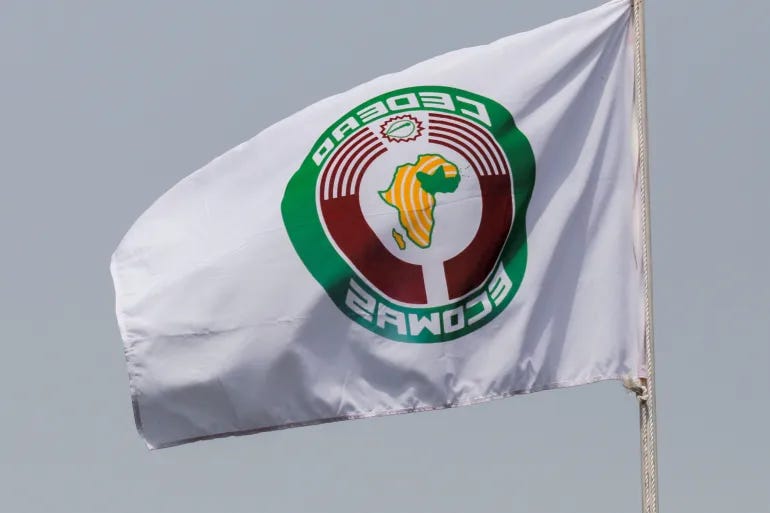West African Military Governments Officially Exit ECOWAS Bloc
Burkina Faso, Mali, and Niger sever ties with the regional organization, citing political tensions and external influence.
The military-led governments of Burkina Faso, Mali, and Niger have formally withdrawn from the Economic Community of West African States (ECOWAS), marking a significant shift in the region’s political landscape.
The regional bloc, headquartered in Nigeria, confirmed the trio’s official departure on Wednesday, concluding a process that began in January 2024. The decision follows ongoing disputes over ECOWAS’s demands for a return to democratic rule in Niger after last year’s coup.
Despite efforts to prevent the split, ECOWAS emphasized its commitment to regional unity, stating that its doors remain open for future dialogue. The organization urged its remaining member states to continue extending membership privileges, such as the free movement of people and goods, to citizens of the departing nations.
Rising Tensions and Strategic Shifts
Founded in 1975, ECOWAS has played a key role in political, economic, and security matters across West Africa. However, a recent wave of military coups, conflicts with armed groups, and geopolitical rivalries between Russia and Western powers has strained the bloc’s cohesion.
The decision to exit ECOWAS has sparked demonstrations in Burkina Faso and Niger, where thousands of supporters rallied on Tuesday. In Niger’s capital, Niamey, protesters led by military officials chanted slogans against French President Emmanuel Macron and leaders of neighboring countries with whom Niger has tense relations, such as Benin, Nigeria, and Ivory Coast.
Similar demonstrations took place in Burkina Faso’s capital, Ouagadougou, where Prime Minister Rimtalba Jean-Emmanuel Ouedraogo addressed a large crowd. “To break the chains of imperialism, we must wield an axe, not the soft hands of a midwife,” he declared.
A New Alliance and Growing Russian Influence
The military rulers of Burkina Faso, Mali, and Niger have long accused ECOWAS of serving the interests of France, their former colonial ruler. In response, they have forged closer ties with Russia, signaling a broader geopolitical realignment in the Sahel region.
In September, the three nations established their own security coalition, the Alliance of Sahel States (AES), pledging mutual assistance against armed insurgencies and external threats. The region continues to grapple with deadly attacks from groups linked to al-Qaeda and ISIL (ISIS), exacerbating instability and fueling calls for stronger military cooperation.
The departure of Burkina Faso, Mali, and Niger from ECOWAS marks a turning point in West African politics, with far-reaching implications for regional diplomacy, security, and economic relations.


